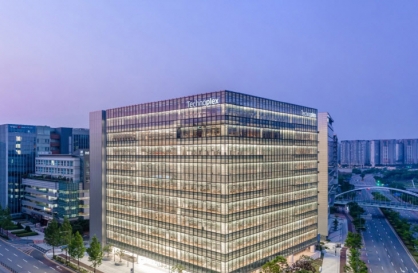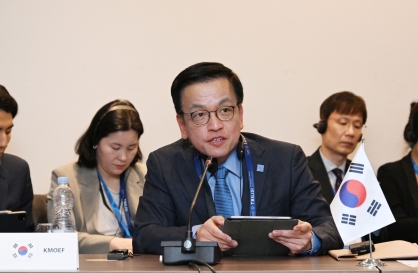Companies increase career opportunities for minorities
Half of employed immigrant women engaged in cheap manual, day labor jobs
By Korea HeraldPublished : May 29, 2013 - 20:28
A government survey of multicultural families released earlier this year showed that 53 percent of female immigrants married to Koreans were employed, higher than the employment rate of women here in general.
About half of those women who were in work, however, were engaged in manual or day labor, indicating difficulty in getting quality jobs. About one-fifth were service workers and 14 percent were engaged in mechanical handling.
Only 3 out of 10 employed immigrant women had a work contract that lasted more than a year. Fifty-four percent had temporary jobs.
About half of those women who were in work, however, were engaged in manual or day labor, indicating difficulty in getting quality jobs. About one-fifth were service workers and 14 percent were engaged in mechanical handling.
Only 3 out of 10 employed immigrant women had a work contract that lasted more than a year. Fifty-four percent had temporary jobs.

Ninety-five percent earned less than 2 million won ($1,770) a month.
The government supports help centers for multicultural families across the country that assist immigrant women in adapting to life in Korea through language education and various counseling services from legal to cultural.
When it comes to career development, however, their programs are limited.
“The centers offer immigrant wives access to the government’s online recruitment information provider (www.work.go.kr) to help them find jobs, but no career training programs other than computer use and workplace etiquette classes,” said an official at the Ministry of Gender Equality and Family.
Another problem, then, is that the children of immigrant wives often struggle more than their Korean peers in school and therefore in getting jobs because their mothers were unable to help them with schoolwork.
As economic hardships continue to plague multicultural families, a number of companies are providing career and educational opportunities for them in partnership with local administrations.
In addition to the nation’s largest conglomerates, medium-sized companies and foreign businesses are supporting multicultural families as well.
Starting with a program that trains immigrant women to be baristas since 2010, Starbucks Korea has led a series of activities to back the children of multicultural families.
Starbucks baristas pay monthly visits to the Seoul Dasom School, an alternative school for multicultural children who plan to work in hotels, to share their talents with the students.
The company also plans to invite 10 children of multicultural families to its youth leadership camp in July during which 50 young Koreans will travel along the railway from the southwestern city of Mokpo to Dorasan and Cheorwon near the DMZ.
BMW Korea Future Fund sends science teachers and laboratory equipment to schools and facilities for children in remote areas including centers for mixed-race children.
Dozens of companies sponsor various other events for multicultural families.
Paris Baguette, for instance, sponsors traditional wedding ceremonies for international couples who did not have a chance to hold nuptials.
The bakery chain’s staff dressed up as the bride’s palanquin bearers and the person who carries the wild goose, a symbol of fidelity, in a Korean traditional wedding and provided food and drinks for the guests.
By Kim So-hyun (sophie@heraldcorp.com)
-
Articles by Korea Herald






![[Weekender] Korean psyche untangled: Musok](http://res.heraldm.com/phpwas/restmb_idxmake.php?idx=644&simg=/content/image/2024/05/02/20240502050841_0.jpg&u=)


![[Eye Interview] 'If you live to 100, you might as well be happy,' says 88-year-old bestselling essayist](http://res.heraldm.com/phpwas/restmb_idxmake.php?idx=644&simg=/content/image/2024/05/03/20240503050674_0.jpg&u=)








![[Herald Interview] Director of 'Goodbye Earth' aimed to ask how we would face apocalypse](http://res.heraldm.com/phpwas/restmb_idxmake.php?idx=652&simg=/content/image/2024/05/03/20240503050732_0.jpg&u=)
